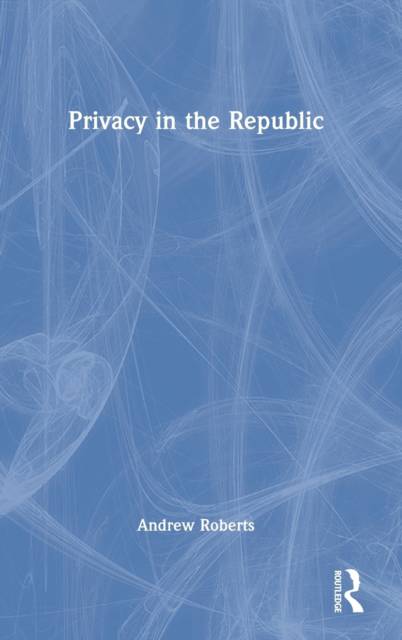
- Retrait gratuit dans votre magasin Club
- 7.000.000 titres dans notre catalogue
- Payer en toute sécurité
- Toujours un magasin près de chez vous
- Retrait gratuit dans votre magasin Club
- 7.000.0000 titres dans notre catalogue
- Payer en toute sécurité
- Toujours un magasin près de chez vous
Description
This book rethinks the idea of privacy. It argues that a satisfactory account of privacy should not limit itself to identifying why privacy might be valuable. It also needs to attend to the further question of how it can be secured in those circumstances in which it proves to be valuable. Drawing on republican ideas about the relationship between freedom and self-government, the book asserts that privacy is valuable, because it enables us to lead non-dominated lives. It prevents others from acquiring power to interfere in our choices - to remove options that would otherwise be available to us, and to manipulate our decision-making. It further examines the means through which citizens might exercise effective control over decisions and actions that affect their privacy and proposes a democratic theory of privacy.
With the emergence of the 'surveillance state, ' this volume will be indispensable for scholars, students, and researchers in political theory, political philosophy, law, and human and civil rights. It will be of particular interest to policymakers, lawyers, and human rights activists.
Spécifications
Parties prenantes
- Auteur(s) :
- Editeur:
Contenu
- Nombre de pages :
- 200
- Langue:
- Anglais
Caractéristiques
- EAN:
- 9780367509408
- Date de parution :
- 12-07-22
- Format:
- Livre relié
- Format numérique:
- Genaaid
- Dimensions :
- 156 mm x 234 mm
- Poids :
- 471 g

Les avis
Nous publions uniquement les avis qui respectent les conditions requises. Consultez nos conditions pour les avis.






